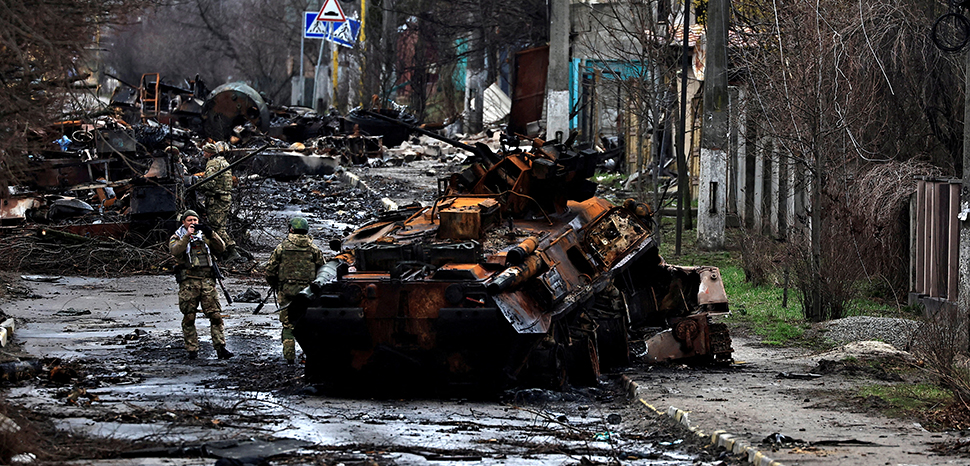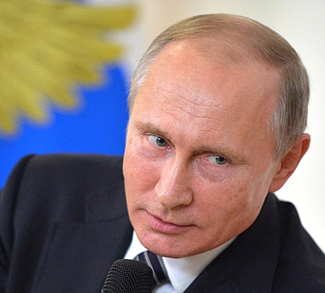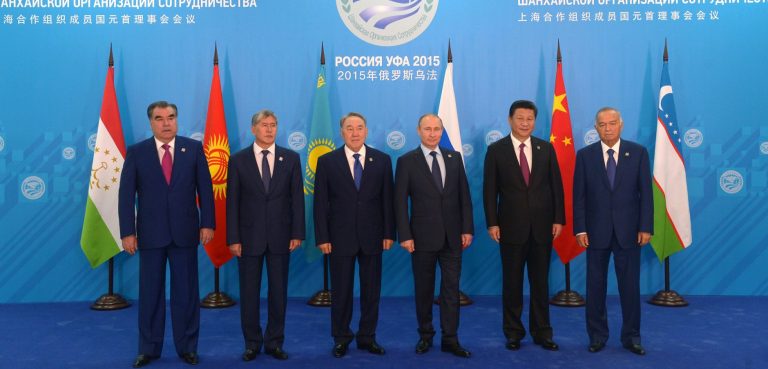In the months preceding the Russian invasion of Ukraine, the topic of the increase in the number of European members of NATO received renewed attention among scholars of international relations. While a number of political realists have criticized the West for not taking sufficient measures to placate Russia due to supposedly adopting tone-deaf policies and failing to heed a purported warning pertaining to the military alliance’s continued eastward enlargement, which was issued by Putin in his 2007 speech at the Munich Security Conference, the actions undertaken and statements made by Russian officials since the start of the war have actually given further credence to the arguments of those experts on Russia, such as American historians Alexander Motyl and Timothy Snyder, who contend that the issue of NATO expansion is hardly tied to any legitimate Russian security concerns and largely constitutes a convenient “red herring” intended to justify other aims (quite likely inherently imperial in nature) that are to be achieved as a result of the war.
If we are to, as a starting point, briefly delve into the background when it comes to internal Ukrainian political dynamics in the late 2010s, it would be difficult to speak of a paradigm shift regarding Ukrainian approach to NATO membership after the inauguration of Volodymyr Zelenskyy in May 2019, which would have altered the international security landscape from the Russian perspective. Zelenskyy very much continued in his predecessor Petro Poroshenko’s footsteps, reiterating the latter’s commitment to put the issue to a referendum, so that Ukrainian citizens could make their own decision. One of the more decisive steps on the domestic scene that paved the way for Ukraine’s potential accession had in fact been taken in February 2019, three years prior to the invasion, at a time when Poroshenko (perceived to be more hardline than Zelenskyy in his attitude toward Russia) was still president – the Verkhovna Rada (the Ukrainian parliament) approved an amendment to the constitution that established membership in NATO and the European Union as strategic goals for Ukraine.
When examining the events after February 2022, one of the first major contradictions that emerges (if we are to accept Putin’s claim that preventing NATO expansion serves as the end-goal of the Russian policy aims) concerns the Russian leadership’s stark insistence to maintain control of the illegally occupied territories despite initial Ukrainian willingness to indulge Putin by abandoning the country’s quest for NATO membership.
Even though the following version of the events is contested by Putin’s press secretary Dmitry Peskov, there are strong indications that just prior to or in the early stages of the invasion, Kremlin’s own Deputy Chief of Staff Dmitry Kozak had ironed out a deal, which included guarantees that Ukraine would not become a member of NATO, thus providing an opportunity for the prevention of or the quick end to the armed hostilities. Over the course of the first month after the invasion, Ukrainian president Volodymyr Zelenskyy himself demonstrated receptiveness to his country adopting a neutral status if this could lead to a settlement of the conflict. Assuming Ukraine’s potential NATO membership was genuinely viewed as a “fundamental threat,” as described by the Russian president in his speech announcing the invasion, it does not seem logical that proposals originating from a Kremlin insider and the Ukrainian political elites, which would have largely precluded any such possibility, would face rejection by Putin. While power disparities matter a lot in international negotiations between countries, the stronger states are by no means always in a position to secure favorable outcomes at the expense of the weaker ones, so a Ukrainian commitment to respect a supposedly vital national interest of Russia should have been appraised by the Russian president as a major victory and caused him to relegate the territorial questions to the backstage.
Perhaps the key to Russia’s true intentions is to be found in Russian Foreign Minister Sergey Lavrov’s own statements, which have since at least the summer of 2022 made it evident that permanent annexation of certain Ukrainian territories (including those beyond the Donbas region) is rather high on the list of Russian priorities and the country is not willing to negotiate on the possibility of loosening its grip on the areas of Ukraine it effectively controls.
Furthermore, if we are to entertain the argument that continual NATO enlargement has backed Russia into a corner, forcing it to take desperate measures, it appears hypocritical how the Putin leadership reacted to Finland’s declared intention to seek NATO membership and the country’s subsequent formal accession into the alliance, which occurred on 4 April 2023. Admittedly, while there has been talk of counter-measures, such as bolstering defenses in the Baltic Sea region, Russia’s response as a whole has been described as acquiescent and muted, with Putin even stating in May 2022 that Russia did not identify the Finnish (and Swedish) NATO bids as direct threats for the country.
However, if we are to pay lip service to the contention that Ukraine becoming a member of NATO poses unacceptable security risks for Russia, there is little reason to assume that Finland joining the alliance is objectively less of a problematic scenario from the Russian standpoint.
Similarly to the case between Ukraine and Russia, the international border between Finland and Russia spans a length of more than 1000 km, with Finnish accession notably doubling Russia’s border with NATO. Perhaps even more importantly, from the standpoint of Russian security, Finland has historically been regarded as a geopolitical buffer state, the assumption being that Russia’s possible enemies would not have access to Finnish territory. Also, unlike in the case of Ukraine prior to the invasion, in Finland there was no sizeable proportion of population that was naturally well-disposed towards Russia due to a combination of linguistic, ethnic, and cultural links, which could potentially serve as a fifth column, presumably ready to do its best to oppose any NATO plans that might jeopardize the security of Russia.
Thus, the Russian officials’ insistence that they view Finland membership differently from the one of Ukraine due to a lack of territorial disputes does not have a convincing ring to it. In April 2023, Dmitry Peskov even stated that Finland was never anti-Russia. A quick overview of historical Russo-Finnish relations and the Finnish public’s views on Russia’s global role would immediately offer proof that such an assertion stretches credulity.
If, as the opponents of NATO expansion are inclined to argue, Putin was consistent in his worldview, having always been interested in safeguarding the future interests of Russians against a purported NATO encirclement, the logic dictates that he would have attempted to pursue a similar course of action against Finland as the one he is currently engaged in on Ukrainian soil, even if the time window for implementing a “military solution” against the Nordic country was quite limited.
The excuses offered by the Russian establishment seem to be intended for the Russian public in order to play down this negative geopolitical fallout for Russia as well as the Russian state’s relatively passive acceptance of it, especially given that there are plenty of reasons to assume that using NATO as a boogeyman continues to play well with Putin’s support base.
A much more plausible explanation is that the Russian elites were simply well-aware that any potential scenario involving an invasion of Finland would be guaranteed to end in a massive failure – in addition to having a highly trained military and a large reserve force as well as benefiting from certain geographical advantages in terms of terrain, Finland would have (as a member state of the European Union) had every reason to expect direct military support from the other EU countries, with Josep Borrell, the High Representative of the Union for Foreign Affairs and Security Policy, confirming in May 2022 that Article 42.7 of the EU Treaties would be triggered in such a case. Ukraine was, unlike Finland, presumably identified in early 2022 as a weak target with a divided population (an assumption that turned out to be very far from the realities on the ground), though Putin was unfortunately proven correct in his calculations that any sort of military intervention by other countries on behalf of Ukraine would not be on the table.
Even if the Russian state has valid long-term security concerns due to the possibility of Ukraine acceding to NATO at some point in the future, this potential scenario cannot remotely justify a full scale military attack on a sovereign state, the targeting of civilian infrastructure, and the commission of numerous atrocities, which have resulted in the loss of thousands of lives. It is, however, worth noting that even this tenuous justification for the war has been almost fully discredited by the Russian leadership’s own statements and actions since the start of the invasion of Ukraine. Thus, in the context of the ongoing conflict, while general discussions pertaining to the previous miscalculations of NATO and the wisdom of the military alliance continuing to stick to an overly ambitious “open door policy” are of course still relevant in a theoretical sense, they may actually have limited explanatory value when it comes to shedding light on Russia’s true aims in Ukraine.
The views expressed in this article belong to the authors alone and do not necessarily reflect those of Geopoliticalmonitor.com.




